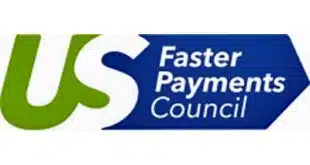Debit cards linked to personal identification numbers are slowly but surely penetrating more and more merchant locations, and as a result PIN debit transactions will begin to overtake transactions on signature-based debit cards within five years, says an analyst at Speer & Associates Inc., Atlanta, who has studied the issue. For years, says Ali Raza, vice president at Speer, merchants resisted PIN debit because of the cost of the point-of-sale PIN pads necessary to process transactions, but the devices have steadily dropped in price and now range between $100 and $150. The devices are still rare among small retailers and in certain merchant categories, such as hotels and restaurants, but they are beginning to migrate down the retailing ranks from large supermarket chains, which were among the first to deploy them “Mid-tier merchants have started to install them,” says Raza. He figures anywhere from 25% to 30% of all U.S. merchant locations are now equipped with PIN pads, up from 20% a year ago. Helping to make the case for PIN debit are two other factors, Raza says. These include the increased security lent to direct debit transactions by PINs rather than signatures. Consumers and merchants concerned about the rise of identity theft are responding to that feature. At the same time, the settlement last year of the huge Wal-Mart anti-trust suit against the bank card networks swept away the networks' longstanding “honor all cards” rule, so that merchants accepting Visa and MasterCard credit cards could for the first time refuse the signature debit products from those brands. Wal-Mart itself famously exercised this freedom in February when it began refusing MasterCard's signature debit card. And Raza says he has heard anecdotally that as many as 500 other retailers have followed suit, though these are small merchants whose decisions have not had any impact on total signature-debit volume. The de-linking of credit and signature debit, however, meant that merchants that installed PIN debit had extra leverage with the card associations, since they had an alternative?and generally less expensive–debit card network to turn to. “In many ways the merchant community is exercising its right to move to a cheaper processing alternative,” says Raza. Visa, at least, may not have as much to lose from this trend as MasterCard. With PIN debit transactions growing at a faster rate than signature-debit payments, Raza says it's only a matter of time before Visa begins promoting its PIN debit network, Interlink, more aggressively. “Some of those signature debit transactions that get displaced will migrate to Interlink,” he predicts.
Check Also
Guidelines Emerge for Adding Send Capabilities for Instant Payments
The U.S Faster Payments Council has released fresh guidelines to help financial institutions add send …





